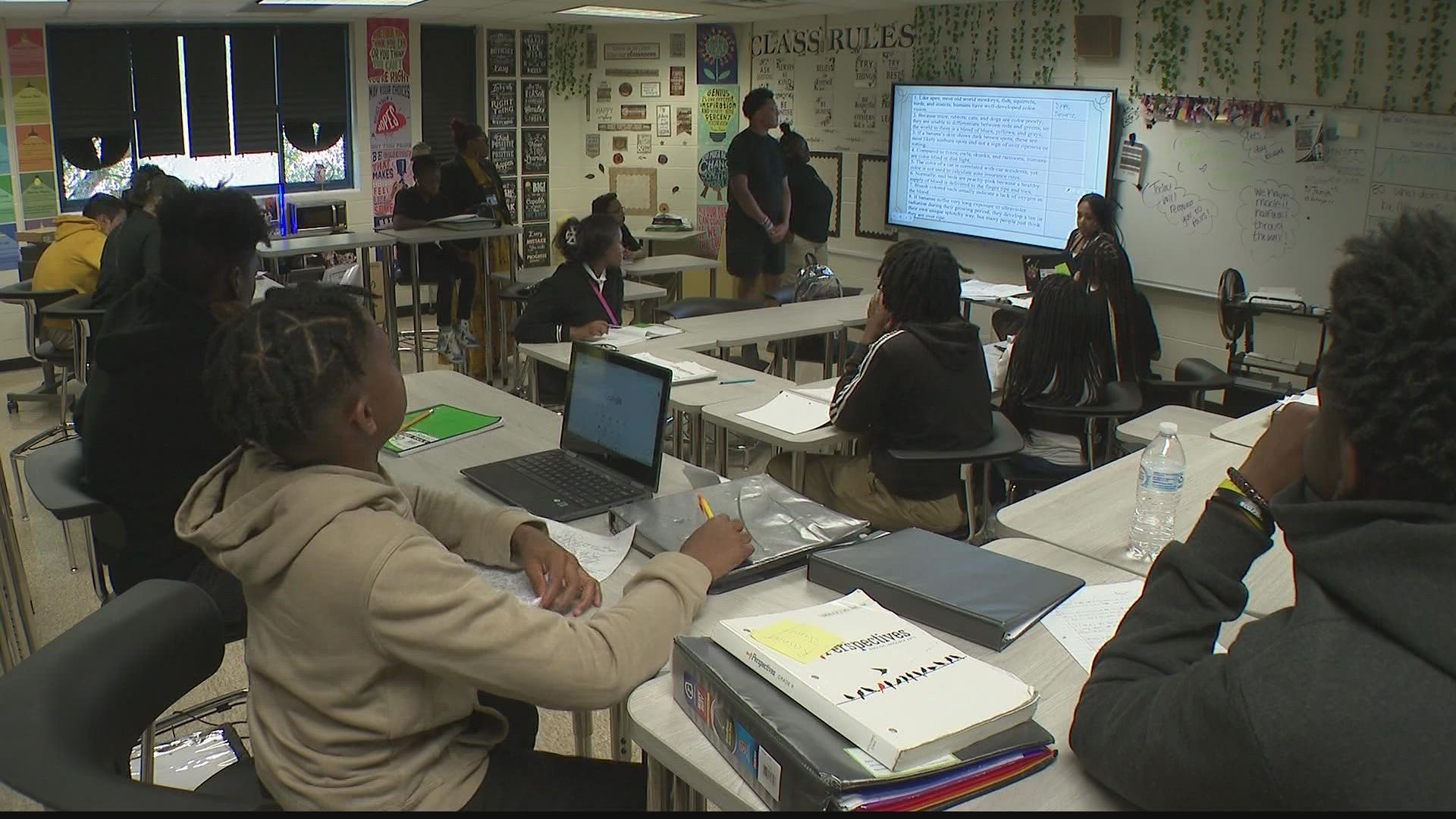ATLANTA — A new school in the Adamsville neighborhood of Atlanta hopes to serve as a solution for young kids battling homelessness and crime. Many students in the area lack basic essentials like food and clothing.
High school can already be difficult enough. Freshmen like John Wilson make it their mission to find a focus. His is football.
"It's easy to get in trouble but it's hard to get out," Wilson said. "Skipping class, hanging out with the wrong crowd, not doing your work. Just really stuff like that. But I have too much going on, so I can't do it."
Wilson is one of 300 students attending the Frederick Douglass Ninth Grade STEAM Academy. The school is just now in its first year, sparked from an idea of separating freshmen from the upperclassmen at the Douglass main campus. It is the first school of its kind in Atlanta Public Schools.
"I’ve experienced mess before, so, it’s like, in mess it’s hard to get out," student Valentina Williams said. "The only way to get out is not being in it. You gotta separate yourself from others. Just having the whole school by yourself, there aren’t a lot of grades. You don’t have to worry about no one picking on nobody.”
Principal Forrestella Taylor said there used to be up to 20 fights a day, attendance was around 75-percent and the graduation rate at Douglass was 69-percent.
Taylor said students regularly have to battle through barriers like bad influences and toxic home environments. She said separating the freshmen has cut down on common distractions.
"Many of our ninth graders were concerned about the gang activity," Taylor said. "They were concerned about the fights, being around older kids. This opportunity removed all of that. We are trying to save the village, and somewhere in this community, our village has gotten lost.”
Freshmen can still participate in athletics and other extracurricular activities at the main campus, however, classes and the main academic functions are held separately. Taylor has already noted a 2 percent increase in attendance so far this year for the ninth graders. Plus, with two dedicated counselors, a social worker and graduation coach, she said change will come soon -- even if it doesn't happen overnight.
"If you can address some of these barriers at the ninth grade level, you’ll ultimately see an increase in your graduation rate," Taylor said. "It's not going to be today. It's not going to be tomorrow. But we're definitely looking at a greater Douglass in 2026."
Wilson plans to be part of that graduating class that sparks change.
"I want to prove a lot of people wrong," Wilson said. "There are a lot of people still doubting me to this day, still doubting me, saying I can't do certain stuff. So I just have to show them."

